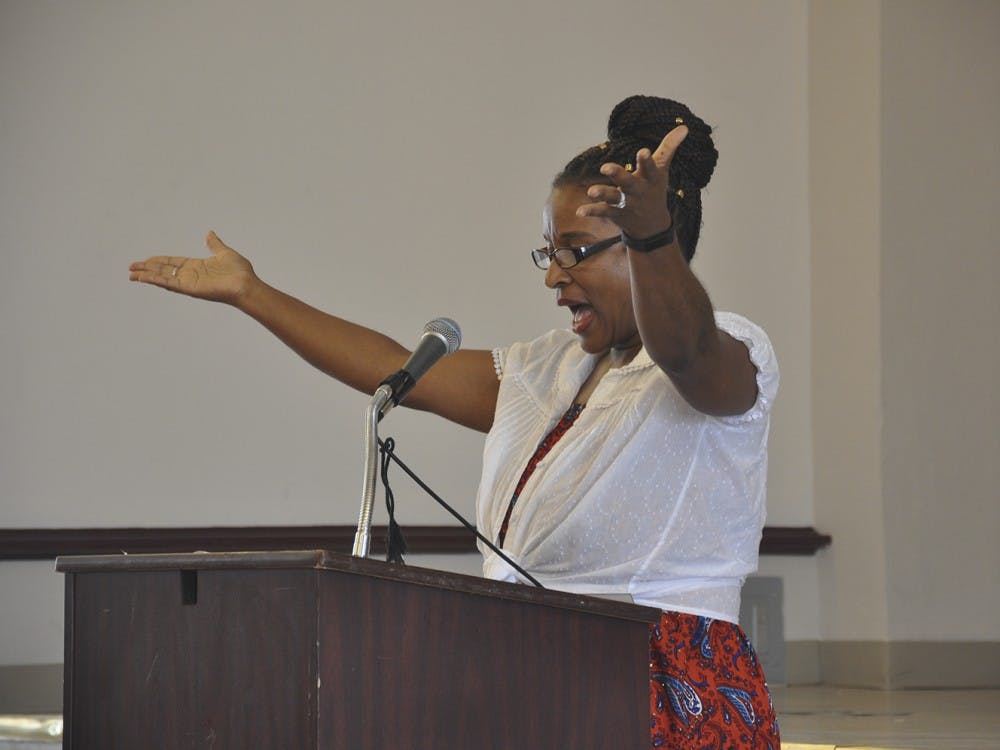The audience was there to hear Carrboro’s second annual community reading of Frederick Douglass’ speech, “The Meaning of July Fourth for the Negro,” which was delivered by Douglass for the first time in 1852.
The event was held at the Carrboro Town Hall last summer but proved to be so popular that it was moved to the Century Center, Carrboro Mayor Lydia Lavelle said at the event.
“We were overflowing,” she said.
About 20 community members each read a section of the speech. The readers included Rogers Road resident Robert Campbell, former state Sen. Ellie Kinnaird and Carrboro Police Chief Walter Horton.
Ted Shaw, professor of law at UNC and director of UNC’s Center for Civil Rights, spoke at the event.
Shaw spoke about how Douglass’ speech provides a different narrative of America’s Independence Day from what many Americans might be used to.
“I first read this speech I think when I was a high school student, I was probably in 9th or 10th grade. It took hold of me from the first time I read it,” he said. “Part of the power in the speech is that Frederick Douglass begins the speech in a way that might lead those who were in attendance to think it was going to be a run-of-the-mill Fourth of July ‘I love America’ speech.”
In the speech, Douglass, who was born a slave, describes how the Fourth of July might mark independence for white Americans but not for slaves or other black Americans.



